Caring for those who care for others: footwear that supports healthcare workers and reduces environmental impact, every step of the way.
Hospital footwear as a service
This bachelor’s thesis explores how hospitals can improve caregiver well-being and meet ESG goals by reimagining footwear as part of institutional procurement. While hospital uniforms are centrally managed, footwear remains an individual responsibility, causing inconsistencies in comfort, safety, and sustainability. In response, this project introduces “Solid Care”, a Product-Service-System that includes recyclable mono-material footwear designed for clinical use and a hospital-integrated service for procurement, personalization, and lifecycle management. Developed in collaboration with Solid Gear and nurses at Rigshospitalet in Denmark, the concept aligns institutional needs, such as staff retention, sustainability, and operational efficiency, with caregivers’ need for support, safety, and self-expression. Rather than standardizing footwear through top-down control, Solid Care enables hospitals to take responsibility while allowing staff to personalize fit and style. The project illustrates how industrial design can be used as a strategic tool to address systemic issues and promote autonomy in healthcare by transforming overlooked products into drivers of organizational change.
Project Information
This bachelor’s thesis investigates how hospitals might improve staff well-being and meet sustainability goals by reframing footwear as part of institutional responsibility. While most hospital uniforms are centrally managed, footwear is typically left to the individual, resulting in inconsistencies in comfort, safety, and environmental sustainability. This project uses that procurement gap as a starting point to explore how a Product-Service-System (PSS) might help hospitals internalize the lifecycle of footwear.
The context is the Central Hospital of Copenhagen, which is actively redefining its procurement models in response to ESG (Environmental, Social, Governance) pressures. Nurses at Rigshospitalet, the hospital chosen for fieldwork, walk between 10,000 and 17,000 steps per day. Despite this, they receive no institutional footwear support. This contradiction exposes a paradox between institutional efficiency and personal autonomy, particularly when hospitals seek standardization while individuals rely on comfort, habit, and expression.
The outcome of the project is Solid Care; a PSS concept developed in collaboration with Solid Gear Footwear. The system includes recyclable mono-material shoes tailored for clinical environments, a procurement and personalization service, and a circular lifecycle strategy. Solid Care aligns hospital goals (retention, logistics, sustainability) with user needs (comfort, identity, support), while promoting autonomy through choice within a within a curated system.
Methods
The project followed the Double Diamond framework, moving through phases of discovery, definition, development, and delivery. In the discovery phase, ethnographic research and interviews were conducted with healthcare staff at Rigshospitalet. These interviews highlighted how footwear is both physically important and symbolically overlooked, affecting well-being, appearance, and emotional resilience. Crocs, for example, were favored for comfort and their ability to humanize interactions through visual personalization (e.g., charms).
A market analysis used tools like SWOT analysis, Business Model Canvas, and perceptual mapping to assess competitor strategies. The analysis revealed that footwear brands compete heavily on product sales but rarely offer service-based solutions. This insight led to a shift in focus: how might a brand like Solid Gear gain a strategic advantage by offering footwear as a service?
Additional research included a company visit to Solid Gear Footwear, where insights were gained into production constraints, recyclability, and the business challenges of closing the loop on materials. The visit revealed that current production is based in Asia, posing challenges for circularity due to logistics and labor costs.
Quantitative and qualitative data were synthesized using tools such as personas, function lists, and stakeholder motivation matrices. The research question emerged:
How might we reframe footwear as an institutional responsibility in hospitals, shifting it from an externalized cost to a strategic asset for staff well-being and sustainability?
The development phase involved prototyping through rapid sketching, virtual reality modelling, and 3D printing. These tools were used to translate core values (care, identity, professionalism) into tangible design features. Simultaneously, service blueprints were created to explore how Solid Care could function within hospital systems. Different levels of technological literacy were considered, and the final service blueprint reflected a mid-tech solution, easy to implement and inclusive for all users. A storyboard and system map were created to visualize both the nurse’s journey and the institutional integration of the service. These tools helped communicate the value of embedding footwear procurement within hospital operations.
Result
The final proposal, Solid Care, is a Product-Service-System designed to institutionalize footwear in a way that promotes both system-wide sustainability and individual autonomy. It consists of three components:
- Product: A recyclable mono-material shoe designed for hospital use, optimized for comfort, safety, and end-of-life disassembly.
- Service: A hospital-integrated procurement and personalization system, allowing caregivers to select styles and fit from a curated collection while enabling traceability and recycling.
- System: A circular infrastructure proposal for hospitals and suppliers to manage footwear lifecycles, supporting ESG compliance, resource efficiency, and staff retention.
Rather than standardizing footwear through top-down control, Solid Care allows institutions to take responsibility while enabling caregivers to express individual preferences in fit and style.
This approach shifts footwear from an overlooked individual expense to a managed institutional asset.
Using Richard Buchanan’s Productive Science as the structure of inquiry, working across the four dimensions of manner, material, form, and function, this project demonstrates how design can operate beyond the product level to address systemic challenges. It shows how an overlooked object like footwear can be reframed as a strategic tool for driving institutional change within complex settings like healthcare.
My hope is that Solid Care can contribute to ongoing conversations about the role of industrial design in service economies. It illustrates how designers can extend their impact beyond form-making to shaping responsible, inclusive systems. The concept also presents a path forward for companies like Solid Gear to evolve from manufacturers to service providers, developing new revenue models and deeper institutional relationships through lifecycle ownership.
In collaboration with:

UID25 | William Roskær – Grad project presentation
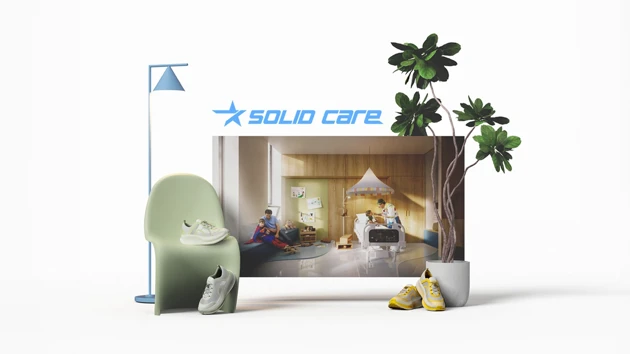
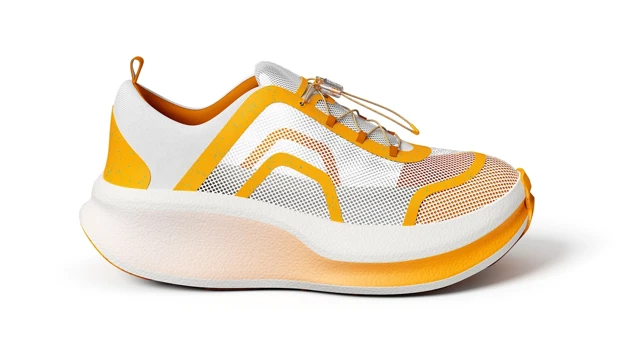
From footwear to plastic pellets, and back again.
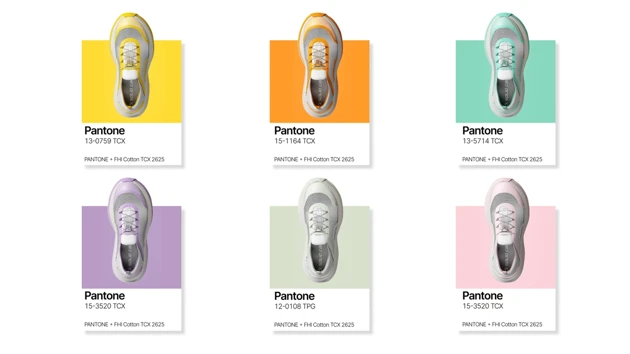
Color, material, finish.
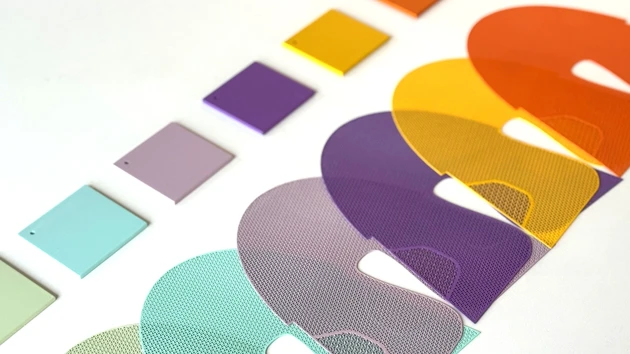
3D printed mesh.
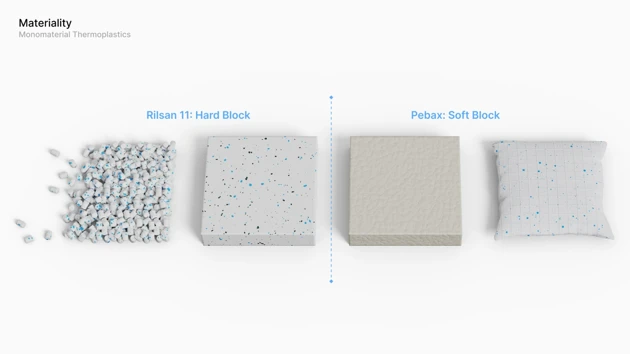
Material strategy focused on end-of-life recovery through mechanical recycling.
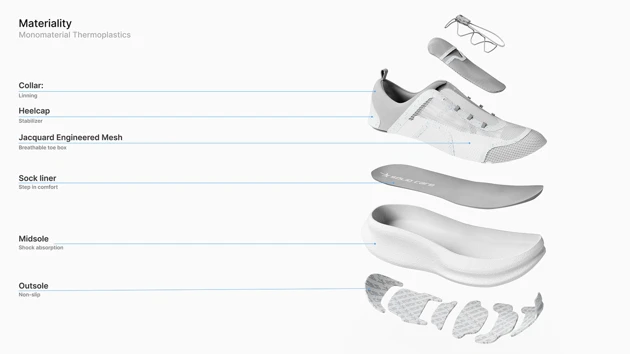
Solid Care footwear anatomy
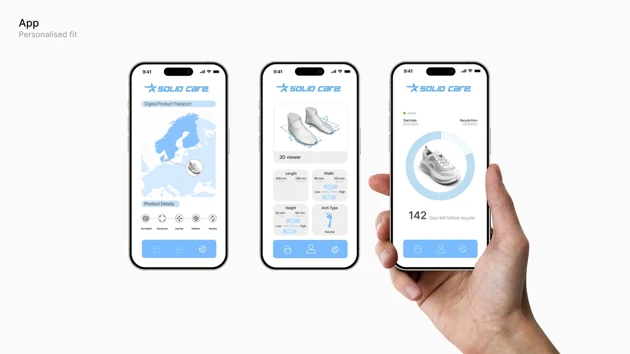
Service platform for shoe selection, customization, and recycling management.

Current system shown with footwear isolated from centralized supply.
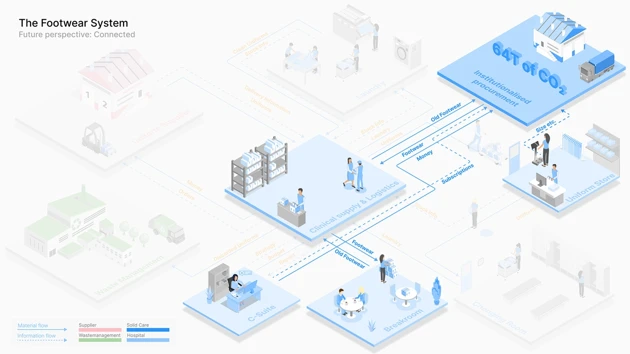
Future system where footwear is embedded in hospital strategy and staff experience.
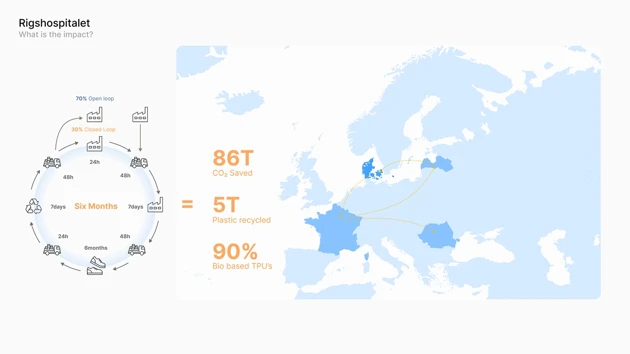
Depiction of the institutional impact when footwear is treated as a strategic asset over a six-month lifecycle.












